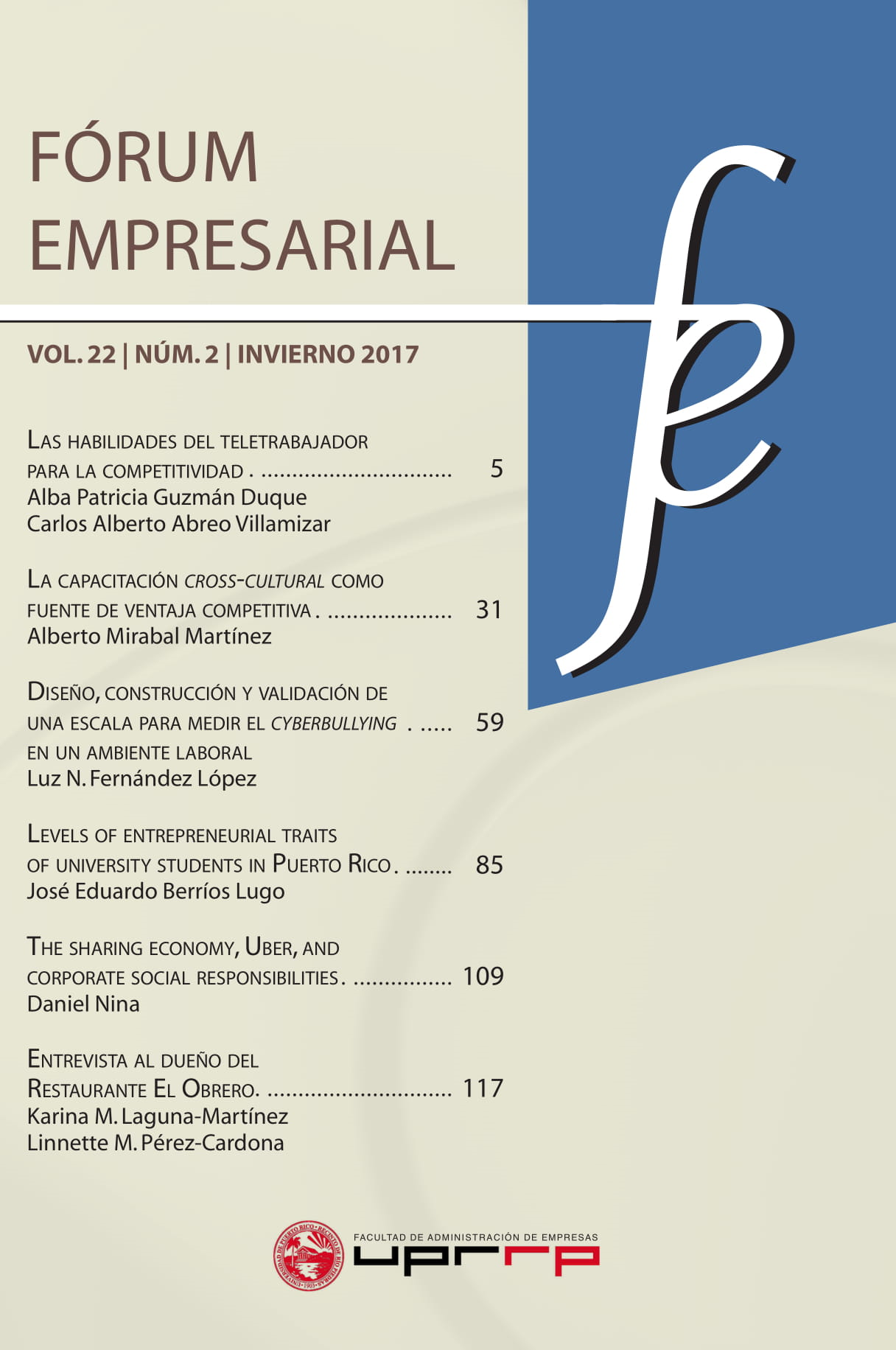Abstract
In this article, we study Uber as an institution, an organization, and a venture, in relation with the sharing economy and its role of obeying social responsibility norms. This line of reasoning is traced to analyze how a non-traditional industry with few state regulations controlling it can insert itself in a society without affecting the equilibrium of what constitutes the common good. Based on the concepts developed by Matten and Moon (2008), we explore the balance between the "explicit" side of social responsibility vis-à-vis the "implicit" side. Uber has affected both the explicit side and the implicit side of the conversation.
References
Di Amato, A. (2016). Uber and the sharing economy. Italian LJ, 2(1), 177–190.
Kanji, G. K., & Chopra, P. K. (2010). Corporate social responsibility in a global economy. Total Quality Management, 21(2), 119–143.
Lichtenstein, D. R., Drumwright, M. E., & Braig, B. M. (2004). The effect of corporate social responsibility on customer donations to corporate-supported nonprofits. Journal of Marketing, 68(4), 16–32.
Lindgreen, A., & Swaen, V. (2010). Corporate social responsibility. International Journal of Management Reviews, 12(1), 1–7.
Mahoney, J. T. (2005). Economic foundations of strategy. Thousand Oaks, CA: Sage Publications.
Matten, D., & Moon, J. (2008). "Implicit" and "explicit" CSR: A conceptual framework for a comparative understanding of corporate social responsibility. Academy of management Review, 33(2), 404–424.
Penn, J., & Wihbey, J. (2015). Uber, Airbnb and consequences of the sharing economy: Research roundup. Journalist‘s Resource. Retrieved from https://journalistsresource.org/studies/economics/business/airbnb-lyft-uber-bike-share-sharing-economy-research-roundup
Swanson, D. L. (1995). Addressing a theoretical problem by reorienting the corporate social performance model. Academy of management review, 20(1), 43–64. http://dx.doi.org/10.5465/AMR.1995.9503271990
Wallsten, S. (2015). The competitive effects of the sharing economy: How is Uber changing taxis? Technology Policy Institute, 22. Retrieved from https://techpolicyinstitute.org/wp-content/uploads/2015/06/the-competitive-effects-of-the-2007713.pdf
Wood, D. J. (1991). Corporate social performance revisited. Academy of management review, 16(4), 691–718. http://dx.doi.org/10.5465/AMR.1991.4279616
By submitting a contribution to consideration of the Editorial Board of Fórum Empresarial, the authors attest that it is an original, unpublished work, which has not been nor will be simultaneously submitted to another journal for consideration and publication; that they are responsible for the work carried out and the content of the article; and they have the corresponding copyrights.
The authors grant the right of first publication of their work to Fórum Empresarial, in any medium and physical and electronic format, including internet. Publication shall be subject to the Creative Commons Attribution-NonCommercial 4.0 International License, which allows third parties to share the work, provided that the author and Fórum Empresarial (as a first publication) are cited.
The journal allows authors to retain publishing rights without restrictions. Authors are able to enter into separate, additional arrangements for the non-exclusive distribution of the journal's published version of the work (e.g., post it to an institutional repository or publish it in a book), with an acknowledgment of its initial publication in Fórum Empresarial.

